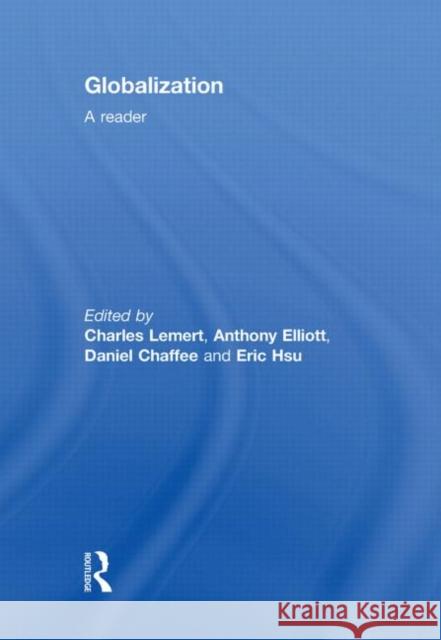Globalization : A Reader » książka
Globalization : A Reader
ISBN-13: 9780415464772 / Angielski / Twarda / 2010 / 472 str.
Globalization : A Reader
ISBN-13: 9780415464772 / Angielski / Twarda / 2010 / 472 str.
(netto: 927,20 VAT: 5%)
Najniższa cena z 30 dni: 881,54
ok. 16-18 dni roboczych.
Darmowa dostawa!
Expected to become a classic in the field and the classroom standard for teachers and their students, this book offers the most comprehensive, engaging selection of classic and contemporary readings on globalization currently available. Here, for the first time in print, is the full historical story of globalization - drawn from original sources, explained by accessible introductions and biographical commentaries, and clearly organized as a comprehensive teaching text to guide students through the ins and outs of globalization. With astonishing social, political and historical depth, the book ranges from the Babylonian and Persian empires in Mesopotamia to the global electronic economy of the 21st century, from ancient Greece and imperial Rome to transformations in contemporary state power and global inequalities. From Kenichi Ohmae to Al Gore, from Osama bin Laden to Timothy Garton-Ash, from Amartya Sen to Abdou Maliq Simone: this is a dazzling collection of the most important academic and public statements on globalization. Throughout, the Editors expertly guide the reader through the complex terrain of globalization - its engaging histories, its transnational economies, its multiple cultures and cosmopolitan politics.
Globalization is the key political and academic debate of our times. This clear, comprehensive and critical reader, Globalization, offers a unique compilation of the major statements - drawn from a variety of historical periods, political contexts, intellectual perspectives and academic disciplines - on the globalization debate.
Anthony Elliott and Charles Lemert expertly guide the reader through the complex terrain of globalization - its engaging histories, transnational economies, multiple cultures and cosmopolitan politics.
Extending over the full range of salient human history, this book ranges from the Babylonian and Persian empires in Mesopotamia, through ancient Greece and imperial Rome to the sixteenth century of European world exploration and colonization.
Represented in the contemporary debates on globalization are: Samuel Huntington, Francis Fukayama, Bill Clinton, Anthony Giddens, Noam Chomsky, Joseph Nye, Osama bin Laden, Ajun Appadurai, Zygmunt Bauman, Timothy Garton-Ash, Saskia Sassen, Kwame Anthony Appiah, James N. Rosenau, David Held, Gayatri Spivak, Amartya Sen, Jeffrey Sacks and Bono.
There is no other book that manages to wrap together the historical, contemporary and academic and public debates as Globalization does. It is essential reading for students of sociology, political science, international relations, public policy and cultural studies - as well as for more general readers interested in public affairs and the global shape of contemporary social problems.











